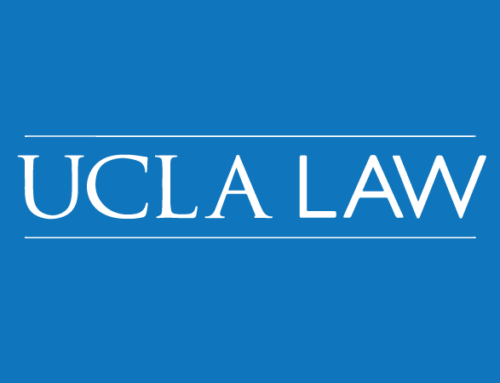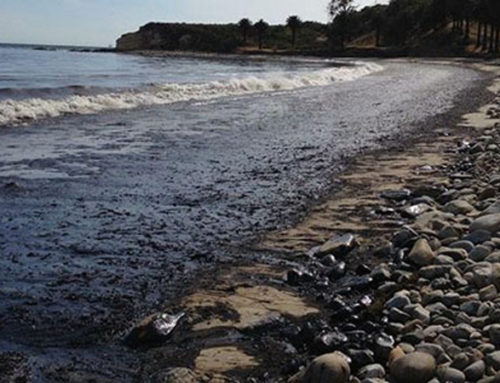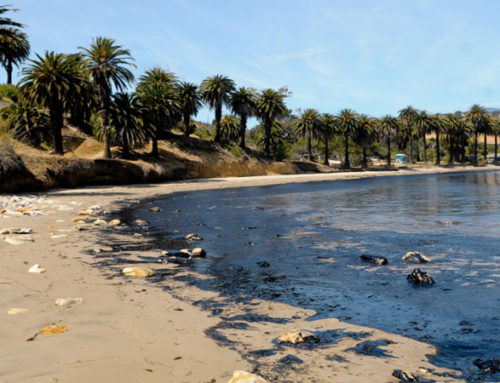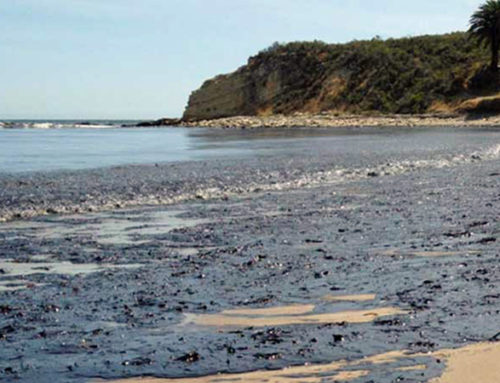Fifty years ago, an oil drilling company failed to put proper safety measures in place causing one of its oil platforms to rupture off the Santa Barbara coast. The result was 3 million gallons of crude oil spewing into 800 miles of the Pacific Ocean and onto 35 miles of Santa Barbara beaches. Thousands of mammals, fish and birds were coated with oil and died. There was outrage. There were protests. And there was a lawsuit. As city attorney for the City of Santa Barbara at the time, I was privileged to have served as chief litigator against Union Oil, Mobil, Gulf and Texaco (all responsible for the oil rig’s operation) in an attempt to hold them responsible for the spill.
It was a challenge. At the time of the spill, there were no environmental laws on the books. The closest were laws against littering on the beach—misdemeanors—hardly punitive enough to get the oil companies’ attention. We had to prove that the spill wasn’t an accident, that it was pure negligence including willful misconduct. We found University of California professors to be our experts and who could explain how the rupture occurred and why it could have been prevented.
At the end of nearly 4 years of legal wrangling, the oil companies knew they would lose at trial. Just before the trial started, a multi-million-dollar settlement was reached. At the time, the settlement was groundbreaking. The funds were used to rebuild the Wharf, the Harbor, Palm Park, and the East Beach Pavilion.
Most importantly, an environmental movement began that demanded polluting companies be held accountable for their reckless actions. Strong environmental laws were enacted at the local, state and federal levels. The Environmental Protection Agency was created that quickly went about establishing strict environmental regulations.
Fifty years after the Santa Barbara spill, it seems we’ve forgotten the lessons learned. We’re letting companies skirt regulations and allowing government officials to water down important environmental laws. The Plains All American Pipeline pipe spill in 2015 is one example of the devastating effect a spill can have on everybody. A 28-year-old, 24-inch Plains oil pipeline ruptured onshore near Refugio State Beach in Santa Barbara County spilling approximately hundreds of thousands of gallons of oil into the ocean and onto beaches and private land; the fishing industry was seriously harmed. The industry hurt itself as over 500 oil workers lost their jobs and the oil platforms have shut down for 3 years so far.
In September 2018, a jury found Plains guilty of knowingly discharging oil into the waters of California—a felony. Plains was also found guilty of knowingly making a false or misleading oil spill report to the California Office of Emergency Services and failing to immediately report any release or threatened release of a hazardous material to emergency agencies upon discovery, both misdemeanor charges. Plains was found guilty of six additional misdemeanor charges including unlawfully allowing a substance/material hazardous to fish, plant and bird life to spill into state waters and beach.
The cause of the Plains oil spill was much the same as the cause of the oil spill 50 years ago—disregard for safety. When the Plains’ pipeline was proposed in the 1980s, the oil company threatened a lawsuit if the County of Santa Barbara required regular government safety inspections of the company pipelines or if they were required to install automatic safety valves that shut the line down if there was a break. Faced with the lawsuit by the pipeline company in 1989, the county relented so no government inspections were mandated. By the time the pipeline began leaking, it was so neglected and corroded that a break in the pipeline was inevitable.
Why are we still fighting these environmental battles? We can never assume that oil companies will do the right thing. Despite their heart-tugging commercials that claim their commitment to the environment, profits will always take precedence.
Let’s use the anniversary of the 1969 Santa Barbara oil spill as a reminder that the Earth’s resources are precious and so very fragile.
Profit decisions can never prevail over safety and environmental protections.






